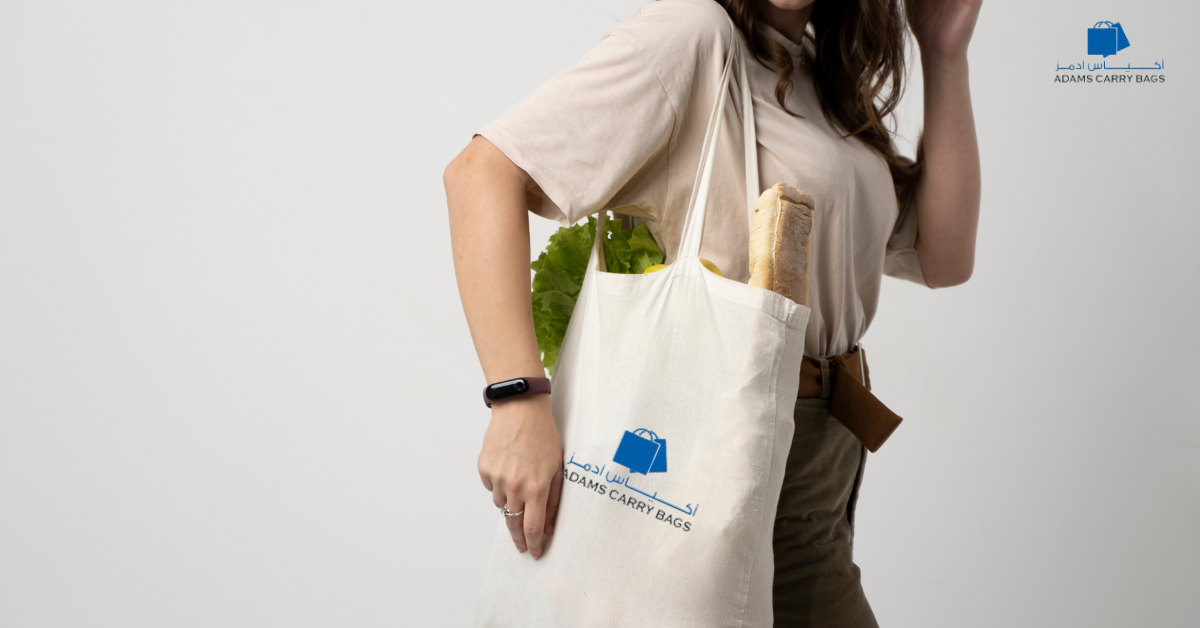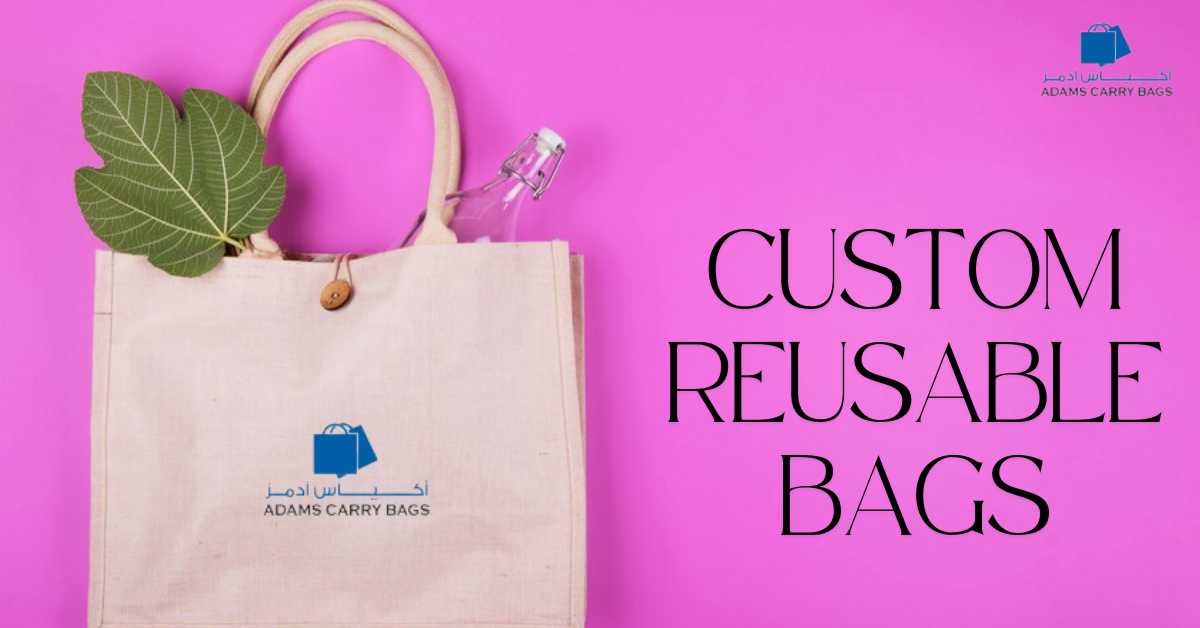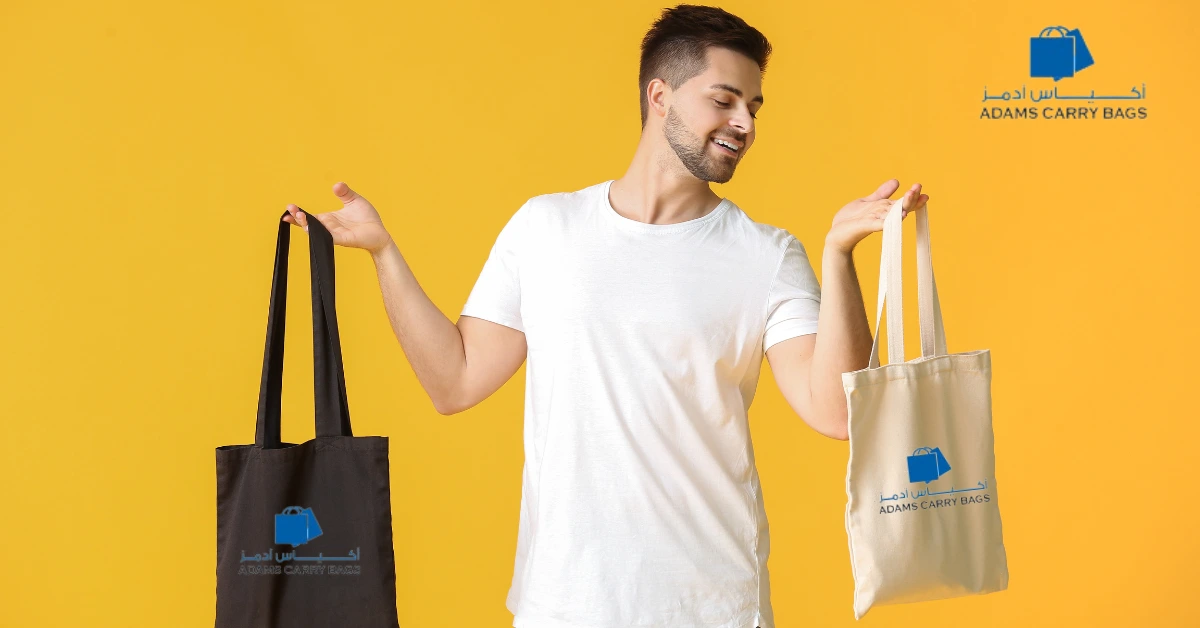
The Heightened awareness of environmental issues has led to a significant shift in consumer behavior. People are increasingly concerned about the detrimental effects of plastic pollution on our planet, particularly on marine life and ecosystems. As a result, there has been a surge in demand for sustainable alternatives to plastic products, including bags.
Cotton bags have risen to prominence as a preferred choice among environmentally conscious consumers. Unlike their plastic counterparts, which contribute to the ever-growing problem of plastic waste, cotton bags offer a sustainable solution. They are biodegradable, meaning they break down naturally over time, leaving behind no harmful residues. This not only reduces pollution but also minimizes the strain on landfills and ecosystems.
Furthermore, cotton is a renewable resource that can be harvested annually without causing long-term environmental damage. This makes cotton bags an eco-friendly choice that aligns with the principles of sustainable living and responsible consumption.
In this comprehensive guide, we’ll explore the myriad benefits of cotton bags in greater detail. From their eco-friendliness to their durability and versatility, we’ll delve into why cotton bags are the ideal choice for conscientious consumers. Additionally, we’ll highlight how stands out as a leader in providing top-quality cotton bags that meet the highest standards of sustainability and craftsmanship.
Understanding Cotton Bags
Cotton bags are not only eco-friendly but also biodegradable, meaning they break down naturally over time, unlike plastic bags that can persist in the environment for hundreds of years. This makes cotton bags an excellent choice for reducing waste and minimizing the impact on landfills and oceans.
Furthermore, cotton is a renewable resource, with the ability to be harvested annually without causing long-term damage to the environment. This sustainable harvesting process ensures that cotton bags have a minimal ecological footprint compared to their plastic counterparts.
Non-woven grocery bags, in particular, are designed to offer maximum convenience to shoppers. With their spacious interiors and sturdy construction, these bags can accommodate a wide variety of items, from groceries to books to clothing. Additionally, many non-woven grocery bags feature reinforced handles and bottom panels for added durability, ensuring that they can withstand the weight of heavy loads without tearing or stretching.
Moreover, cotton bags can be customized with logos, slogans, or colorful designs, making them not only practical but also a stylish accessory. Many retailers and businesses are opting for custom cotton bags as a way to promote their brand while also supporting sustainability initiatives.
In summary, cotton bags, including non-woven grocery bags, are more than just reusable carriers—they are symbols of a sustainable lifestyle. By choosing cotton bags over plastic, consumers can make a positive impact on the environment while enjoying the versatility, durability, and style that cotton bags have to offer.
Benefits of Non-Woven Grocery Bags
The production of non-woven grocery bags involves a process called thermal bonding or needle punching, which creates a strong bond between the fibers without the need for weaving. This results in a seamless and tear-resistant material that can withstand the rigors of daily use.
Moreover, non-woven grocery bags are known for their breathability, allowing air to circulate through the bag and preventing the buildup of moisture and odors. This feature makes them particularly suitable for carrying fresh produce and perishable items, as it helps to maintain their quality and freshness for longer periods.
Furthermore, non-woven grocery bags often come with reinforced seams and handles, further enhancing their durability and longevity. This ensures that the bags can withstand heavy loads without ripping or tearing, providing consumers with a reliable and long-lasting solution for their shopping needs.
Additionally, the lightweight nature of non-woven grocery bags makes them easy to carry and store when not in use. Unlike bulky plastic bags, which can take up valuable space in cupboards or closets, non-woven grocery bags can be folded or rolled up compactly, making them convenient to keep on hand for impromptu shopping trips.
Overall, non-woven grocery bags offer a winning combination of durability, versatility, and convenience, making them an essential accessory for environmentally conscious shoppers. Whether used for grocery shopping, running errands, or carrying everyday essentials, these innovative bags are sure to meet the needs of modern consumers while also reducing their environmental impact.
Exploring Eco-Friendly Options
Furthermore, non-woven carry bags exemplify the pinnacle of sustainable design by being crafted from recycled materials. These bags often incorporate post-consumer recycled content, such as recycled plastic bottles or reclaimed textile fibers, which helps to divert waste from landfills and reduce the demand for virgin materials.
Moreover, the manufacturing process of non-woven carry bags typically consumes less energy and water compared to traditional textile production methods, further minimizing their environmental impact. By choosing non-woven carry bags over conventional plastic bags, consumers can significantly reduce their carbon footprint and contribute to the conservation of natural resources.
Additionally, non-woven carry bags are designed to be easily recyclable at the end of their lifecycle, ensuring that they can be repurposed into new products or materials rather than ending up in a landfill. This closed-loop approach to production and disposal aligns with the principles of a circular economy, where resources are kept in circulation for as long as possible, ultimately reducing waste and promoting sustainability.
Furthermore, the widespread adoption of non-woven carry bags by retailers and businesses has helped to raise awareness about the importance of sustainable consumption practices. Many companies now offer incentives, such as discounts or rewards, to customers who bring their own reusable bags, encouraging further adoption of eco-friendly alternatives.
The Quest for Durability
The durability of non-woven grocery bags extends beyond their ability to withstand daily wear and tear. Unlike plastic bags, which are prone to tearing or breaking after just a few uses, non-woven grocery bags are engineered to maintain their structural integrity over time.
Additionally, non-woven grocery bags are resistant to fading and discoloration, ensuring that they retain their appearance and functionality even after repeated use and exposure to sunlight. This makes them a reliable and attractive option for consumers who value both style and substance in their shopping accessories.
Furthermore, the durability of non-woven grocery bags contributes to their cost-effectiveness in the long run. While the initial investment may be slightly higher than that of disposable plastic bags, the lifespan of non-woven grocery bags far surpasses that of their plastic counterparts. This means that consumers can save money over time by investing in a reusable option that eliminates the need for frequent replacements.
Moreover, the longevity of non-woven grocery bags reduces their environmental impact by minimizing the amount of waste generated from single-use plastic bags. By choosing a durable and reusable alternative, consumers can significantly reduce their contribution to landfill pollution and marine debris, thereby protecting ecosystems and wildlife.
In summary, the durability of non-woven grocery bags makes them a practical, cost-effective, and sustainable choice for consumers seeking long-lasting solutions to their shopping needs. By investing in these durable alternatives to plastic bags, consumers can enjoy the benefits of convenience, affordability, and environmental responsibility for years to come.
Innovation in Cotton Bag Design
Non-woven carry bags are at the forefront of innovation in the world of cotton bags, offering a range of advanced features that elevate their usability and appeal. One notable innovation is the incorporation of reinforced handles, which are designed to withstand heavy loads and provide added comfort during transportation. These reinforced handles ensure that consumers can carry their groceries and other items with ease, without worrying about the handles breaking or tearing.
Furthermore, foldable designs have become increasingly popular among non-woven carry bags, allowing them to be compactly folded or rolled up when not in use. This space-saving feature makes it convenient for consumers to store their bags in purses, backpacks, or glove compartments, ensuring that they always have a reusable option on hand when needed. Additionally, foldable designs make non-woven carry bags ideal for travel, allowing consumers to pack them away easily for use during shopping excursions or day trips.
Moreover, non-woven carry bags are available in a wide range of colors, patterns, and styles, catering to diverse consumer preferences and fashion trends. Whether it’s a bold statement print, a sleek minimalist design, or a classic neutral color, there’s a non-woven carry bag to suit every taste and occasion. This variety not only enhances the practicality of these bags but also adds an element of style and personality to the shopping experience.
Furthermore, many manufacturers are incorporating sustainable materials and production methods into the design of non-woven carry bags, further enhancing their eco-friendly credentials. By using recycled materials, minimizing waste, and reducing energy consumption, these innovative manufacturers are setting new standards for sustainability in the cotton bag industry.
Embracing High-Quality Standards
The commitment to quality in non-woven grocery bags extends beyond their durability to encompass various aspects of their design and construction. These bags are meticulously crafted using high-quality materials and expert craftsmanship, ensuring that every detail meets the highest standards of excellence.
In addition to using durable materials, such as reinforced non-woven fabric, manufacturers pay close attention to the stitching and seams of non-woven grocery bags. Double stitching and reinforced seams are common features, providing added strength and stability to the bag’s structure. This meticulous attention to detail ensures that non-woven grocery bags can withstand the rigors of daily use, including carrying heavy loads of groceries or other items.
Moreover, high-quality non-woven grocery bags undergo rigorous testing to ensure they meet strict quality control standards. This testing may include assessments of tear resistance, tensile strength, colorfastness, and overall durability. By subjecting their products to thorough testing, manufacturers can guarantee that non-woven grocery bags will perform reliably under real-world conditions, giving consumers peace of mind knowing that their belongings are safe and secure.
Furthermore, non-woven grocery bags are designed with practical features that enhance their usability and convenience. Many Cotton bags feature reinforced handles for comfortable carrying, as well as convenient pockets or compartments for organizing smaller items. Additionally, some bags come with adjustable straps or detachable shoulder straps, allowing consumers to customize their carrying experience to suit their needs.





